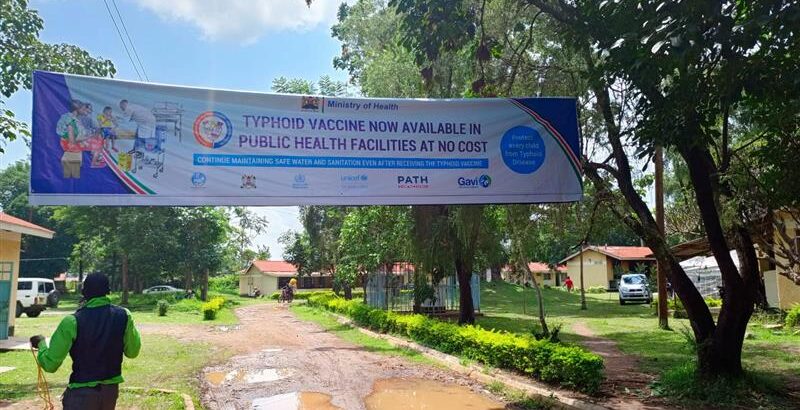Today, Kenya begins a campaign to reach more than 21 million children with typhoid conjugate vaccines (TCVs)—a landmark achievement in our work to safeguard children’s health. I am immensely proud of this effort to protect children from typhoid, a potentially life-threatening disease that affects more than 100,000 people in Kenya each year.
Typhoid in Kenya
Typhoid is endemic in Kenya, and more than half of typhoid cases and deaths in the country are among children younger than 15 years old. Data show rising numbers of multi-drug resistant typhoid cases in Kenya, which require more complex care and expensive antibiotics to treat.
TCVs are highly effective at preventing typhoid, including drug-resistant typhoid, and can play a major role preventing the spread of drug-resistant typhoid strains. Introducing TCVs will not only protect children from typhoid, but will also ease the burden of missed work and expensive treatment costs for parents and caregivers.
Reaching 21 million children
Starting today, health workers across the country are mobilizing to reach 21 million children aged 9 months to 15 years with TCVs. The campaign will also provide 7.5 million eligible children aged 9 months to 5 years with the measles-rubella vaccine.
This integrated campaign supports the Big Catch-Up strategy in Kenya to reach children who missed routine vaccinations following the COVID-19 pandemic. At schools, clinics, churches, mosques, and other vaccination sites across the country, caregivers can bring their children aged 9 months to 15 years to receive TCV and, if eligible, the measles-rubella vaccine. Our vaccination teams are conducting community outreach and operating mobile posts in rural and hard-to-reach areas to ensure as many children as possible have access to these lifesaving interventions.
Integrating TCV introduction with the catch-up measles-rubella vaccine campaign is an opportunity to protect children from multiple preventable diseases at once, potentially raising coverage for both vaccines. Following the campaign, TCVs will be incorporated into the routine immunization schedule and will be available for all children at 9 months of age.
Advancing child health on multiple fronts
This nationwide campaign reflects a deep dedication in Kenya to protecting child health, not only by preventing typhoid, but also by increasing immunization coverage for measles-rubella vaccine and strengthening the immunization system as a whole. By introducing TCVs and reaching more children with measles-rubella vaccines, we are working toward a future where all children can thrive—a future with fewer hospital and clinic visits, more days in school, lower treatment costs, and a reduced risk of drug-resistant infections and complications like typhoid intestinal perforation.
Kenya’s TCV introduction is a milestone step toward protecting all children from typhoid—one made possible by the commitment of government leaders and partners. Along with investments in water, sanitation, and hygiene, strengthening cold chain infrastructure, and other components of our national immunization program, the introduction of TCVs brings us closer to our goal of ensuring every child has access to the lifesaving vaccines they need.
Cover photo: A banner advertising the TCV introduction campaign in Bumula, Kenya. Credit: PATH.



